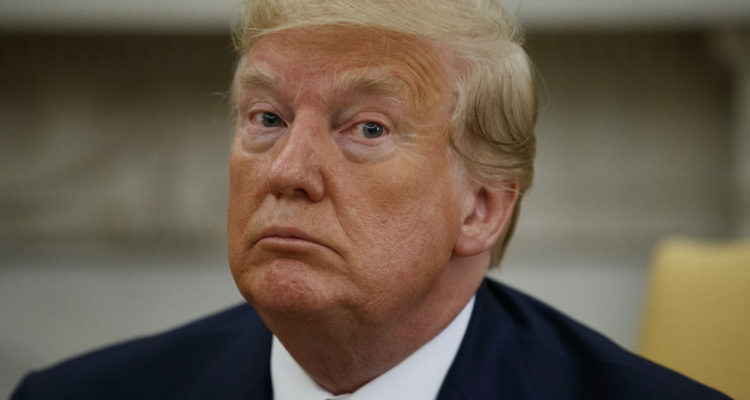“It’s getting harder for me to want to make a deal with Iran,” Trump said on Monday.
By World Israel News Staff
President Donald Trump said the possibility of coming to agreement with Iran is looking less and less likely. He made his remarks to reporters on Monday while meeting in the White House with Pakistani Prime Minister Imran Khan.
“If they want to make a deal, it’s — frankly, it’s getting harder for me to want to make a deal with Iran because they behave very badly. They’re saying bad things,” Trump said.
The president also indicated that the U.S. was “ready for the absolute worst.” He said, “We are very geared up,” noting Iran is “really the number-one state of terror in the world.”
Trump also attacked the 2015 nuclear agreement brokered by then-President Barack Obama, which he pulled out of in May 2018.
“The deal that President Obama made was a disaster because it was such a short term. It didn’t cover ballistic missiles. And they couldn’t see the important sites. Under this you couldn’t inspect the important sites. There were many things wrong,” he said.
Feeling economic pressures due to sanctions reimposed on them by Trump, Iran’s leaders began making threatening in recent months.
Most recently, Iran waylaid a British oil tanker, possibly by disrupting its GPS systems leading it into Iranian waters. An Iranian military commandos boarded the boat and took it into an Iranian port.
Britain, which had earlier blocked an Iranian oil tanker near Gibraltar, is considering joining the U.S. in reimposing sanctions as a result of the growing threat to its oil supply by Iranian aggression.
Iran was also blamed for an attack on two oil tankers in the Persian Gulf on June 13. Although Iran didn’t take credit for it, the U.S. was quick to point its finger at the Islamic Republic, citing “intelligence.”
Iran is considered responsible for drone attacks against Saudi Arabian oil pipelines in May. Those attacks, initially blamed on Houthi rebels in Yemen, who claimed credit for them, are now believed to have come from Iraq, implicating Iran-backed militias in that region.
The Wall Street Journal reports that the new information, which became public late last month, raises “concerns that Iran’s allies in the region are trying to open a new front in the conflict between Tehran and Washington.”




